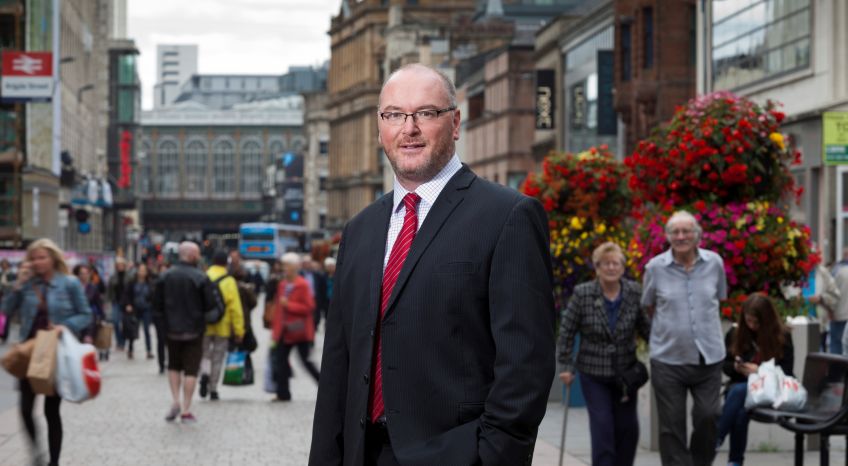Martin Armstrong: Why growing in size has plenty of advantages
How is it possible, as you get bigger, to remain close to your customers and communities and your social purpose? Wheatley Group chief executive Martin Armstrong explains.

Martin Armstrong
At the end of November, tenants of Dumfries and Galloway Housing Partnership (DGHP) voted overwhelmingly to join Wheatley Group.
DGHP, which has 10,300 social-rented homes and factors over 1000 properties, recorded a ballot turnout of 75%. No fewer than 95.5% of those who voted decided Wheatley was the right home for them and their families.
The move has brought together Scotland’s two largest social landlords. Wheatley subsidiaries now own or manage 93,102 homes across 18 local authority areas.
There is no doubt in my mind our size, scale and capacity enables us to do more for our customers and communities and to keep on improving our award-winning services. Our muscle also equips us to work more effectively and efficiently in “Making Homes and Lives Better” for hundreds of thousands of people across Scotland.
In some quarters, size has always been deemed a disadvantage and a handicap towards close and meaningful involvement and engagement with customers and communities. I don’t buy that.
I believe Wheatley customers enjoy the very best of both worlds.
For a start, with patch sizes of just 200 houses – among the smallest in the UK – our housing officers are able also to spend more time out and about in their communities, delivering highly-personalised services.
This was something the tenants and factored homeowners of DGHP understand and is why, I believe, they voted to become part of the Wheatley family. A major pillar of our offer to DGHP was that as part of Wheatley, their voices would be heard and that Wheatley and its new subsidiary would be deeply rooted in its communities.
Our determination to find new and even more compelling ways for tenants to be in the driving seat is uncompromising. Yes, tenants sit on our Boards (including the Group Board itself) and are members of forums, scrutiny panels and local committees. But we are committed to broadening and deepening customer engagement.
That is why we began this new decade by publishing international research – commissioned by Wheatley and the Chartered Institute of Housing (CIH) – that examined how organisations across the world are communicating with and involving their customers and communities. The study, carried out by The Democratic Society, was the first of its kind to be undertaken in the UK.
Increasing and enhancing our digital offering also helps us to maintain closer links with customers. Our range of digital services provides more and better choice, control and convenience to customers. Our digitally-tooled-up housing officers are out and about in tenants’ homes providing faster, better services at the point of personal contact.
Being part of a larger group also enables our frontline staff to provide deeper, more extensive support to people facing hardship. DGHP customers now will be able to access a wide range of wraparound services, such as Eat Well, an emergency food-delivery programme, and Home Comforts, which provides high-quality, recycled furniture and white goods to people in need.
Going forward, they will also, as do the tenants of Wheatley’s other RSLs – GHA, Cube, Dunedin Canmore, Loretto Housing, West Lothian Housing Partnership and Barony – be offered everything from jobs, apprenticeships and training opportunities to bursaries to go to university or college and fuel, financial and welfare benefits advice and support.
Importantly, in joining Wheatley, DGHP will be able to unlock £125 million of investment that will enable it to accelerate its new-build and refurbishment programmes, create 500 new jobs in the local area, while keeping rents even more affordable. It all adds up to a significant economic and social boost to the region.
Sometimes size can be everything. But then again at six foot three, I would say that, wouldn’t I?








